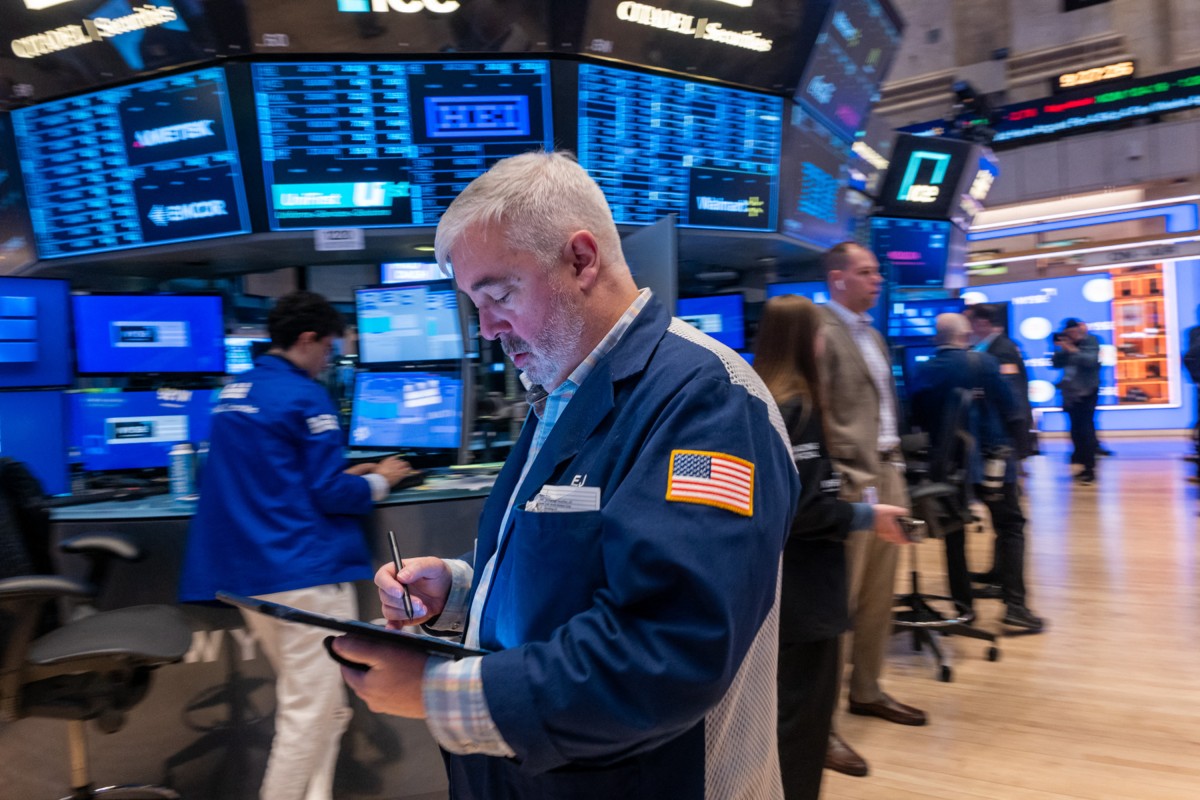The imposition of sweeping tariffs by the United States has significantly disrupted international trade, sending shockwaves through the global economy.
The tariffs—along with continuous threats of steeper tariffs—have also caused volatility in financial markets. In early April, when US President Donald Trump unveiled a new tariff regime, global stock markets plummeted. The S&P 500, for instance, fell below 5,000 points for the first time in almost a year, wiping out trillions of dollars.
Stocks later rallied after Trump announced a 90-day pause on additional higher tariffs that were set to impact around 80 countries.
Today, trade tensions persist as governments and business leaders negotiate tariffs rates and exemption policies, fuelling uncertainty and turbulence in financial markets.
Amidst the turmoil, we ask three experts why tariffs create such volatility in financial markets and how the instability could impact the global economy in the near future.
Here’s what they had to say:
Xiaoyan Zhang, Chair Professor of Finance, Associate Dean, PBC School of Finance, Tsinghua University
“Tariffs and trade tensions hang over global financial markets like a storm cloud, injecting significant volatility and disrupting expectations about the global economy. Markets are inherently forward-looking, so when major economies enter trade disputes, investors quickly reassess their outlook on risk and growth prospects, leading to fluctuations in asset prices. The imposition of tariffs or the threat of retaliatory measures introduces layers of uncertainty about supply chain reliability, production costs, and market access. The uncertainty ripples across various asset classes, as markets attempt to price in the potential long-term consequences of fragmentation.
“The impact of trade tensions extends beyond price fluctuations in financial markets, having significant consequences for the global economy. Trade uncertainty acts like a brake on global growth, holding back the engine of investment and innovation. Multinational corporations, concerned about escalating tariffs, may delay expanding capacity or investing in new technologies. Meanwhile, inflationary pressures build as tariffs drive up the cost of goods and services. Consumers, faced with rising prices and market instability, may cut back on spending, further weakening demand.
“In this climate, global cooperation and open dialogue are crucial to restoring stability, fostering economic growth, and building a more resilient, interconnected global economy.”
Santiago Fernández de Lis, Head of Regulation, BBVA
“The main impact of trade tensions on global markets is through uncertainty. When major economies—like the US and China—engage in a tariff war, investors fear slower global trade, disrupted supply chains and weakened corporate profits. This anxiety translates into market volatility. Companies delay investment decisions, consumers lose confidence and currencies fluctuate wildly.
“Prolonged market turmoil can erode economic fundamentals. Stock market instability affects households and pension funds wealth, which in turn can curb consumer spending. If businesses face unpredictable trade conditions, they may cut jobs or scale back production. Emerging markets, often collateral damage in these tensions, can suffer capital flight and currency crises.
“The most worrying recent market development is the rise in dollar long term yields, together with the dollar weakness. The US currency seems to be losing its safe haven status, and the self-inflicted damage of the US administration to its own economy and financial markets seems to be eroding the dollar’s role at the center of the global financial system. Leadership at the global financial systems only changes very slowly and after major shocks, but the actions of the US administration may create the conditions for such a change.”
Gbenga Ibikunle, Professor and Chair of Finance, Director of the Edinburgh Centre for Financial Innovations, University of Edinburgh
“Tariffs are not directly responsible for the recent level of volatility observed in financial markets, their introduction are information events that would normally be speedily reflected in asset valuations, once their implications become clear. Markets do not react to what is known – what is known is already incorporated into asset prices – they react to innovations in the belief(s) held by investors. Hence, as currently held beliefs regarding global tariffs and trading conditions are now tested often, with significant reversals in the United States’ trading policy announced within days of their introduction, we should see more rapid changes in the valuation of assets traded in financial markets.
“This excess volatility holds significant implications for the global economy. Markets’ ability to provide liquidity and informationally-efficient prices facilitates asset allocation, hedging and diversification and other vital activities that the global economy relies on to function well.
“Therefore, market quality is critical to the financial well-being of economic actors in any modern society – job growth, incomes, retirement incomes and standard of living depend on corporate investment, the financing of which depends critically on well-functioning financial markets. Given what is happening now, the implication is that global economic growth will slow or decline in the near future, depending on the severity of policy uncertainty, unless global trading policy becomes significantly more stable very soon.”
Spencer Feingold is the Digital Editor, World Economic Forum.
This write-up was first published by the World Economic Forum.








